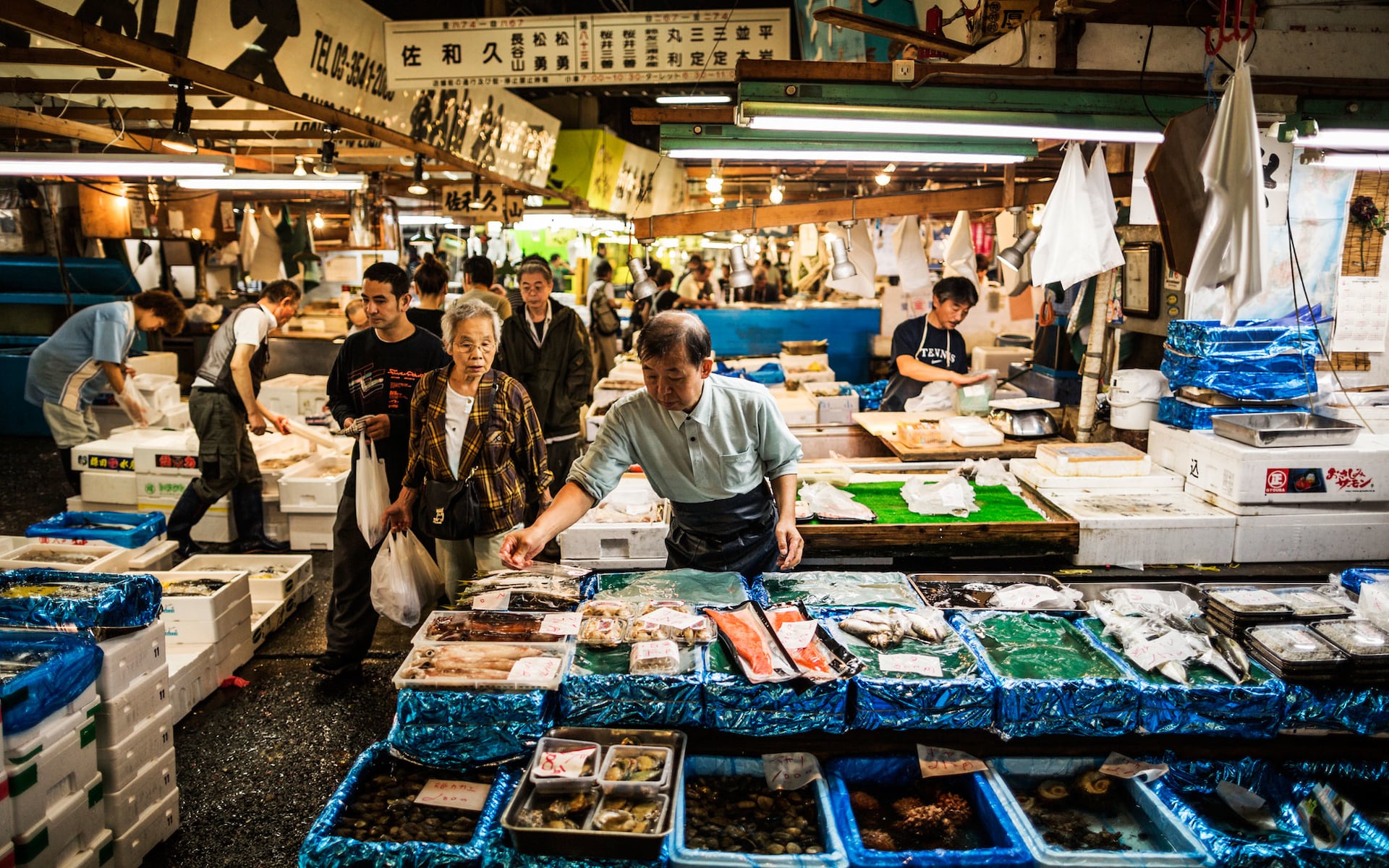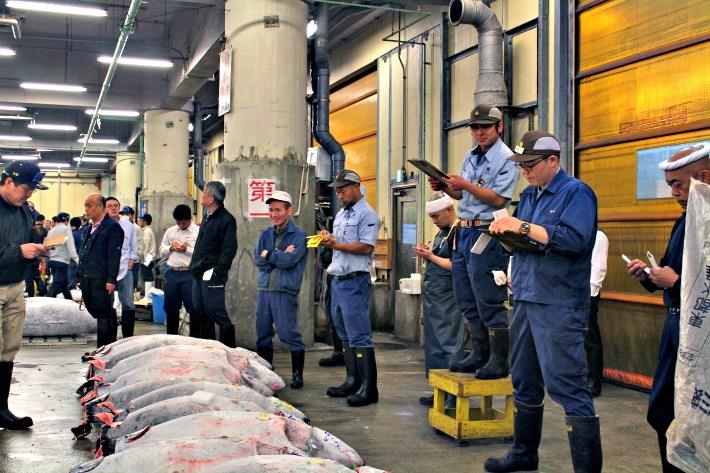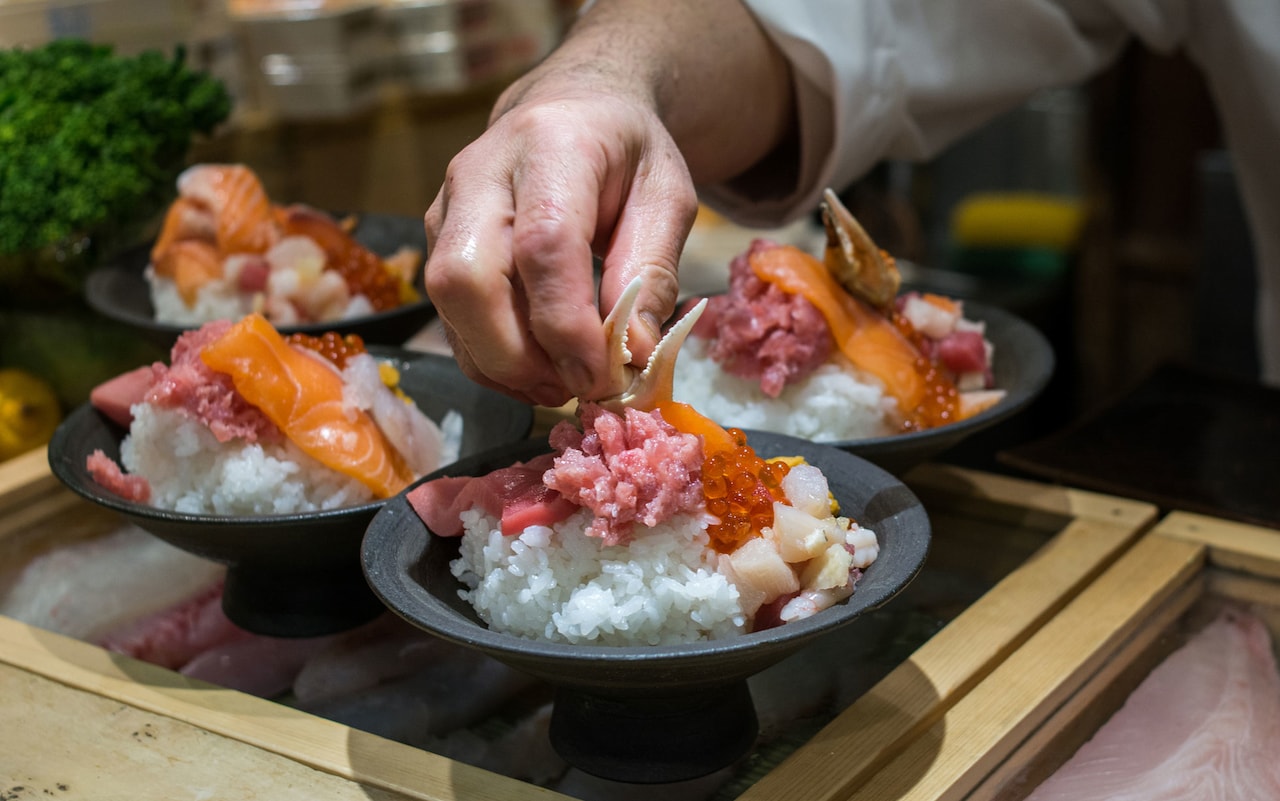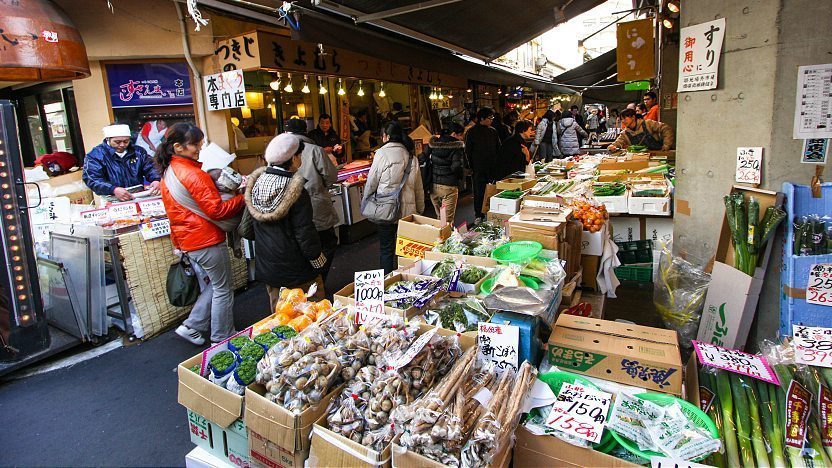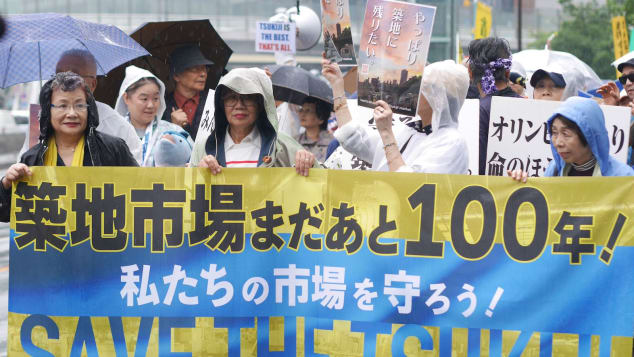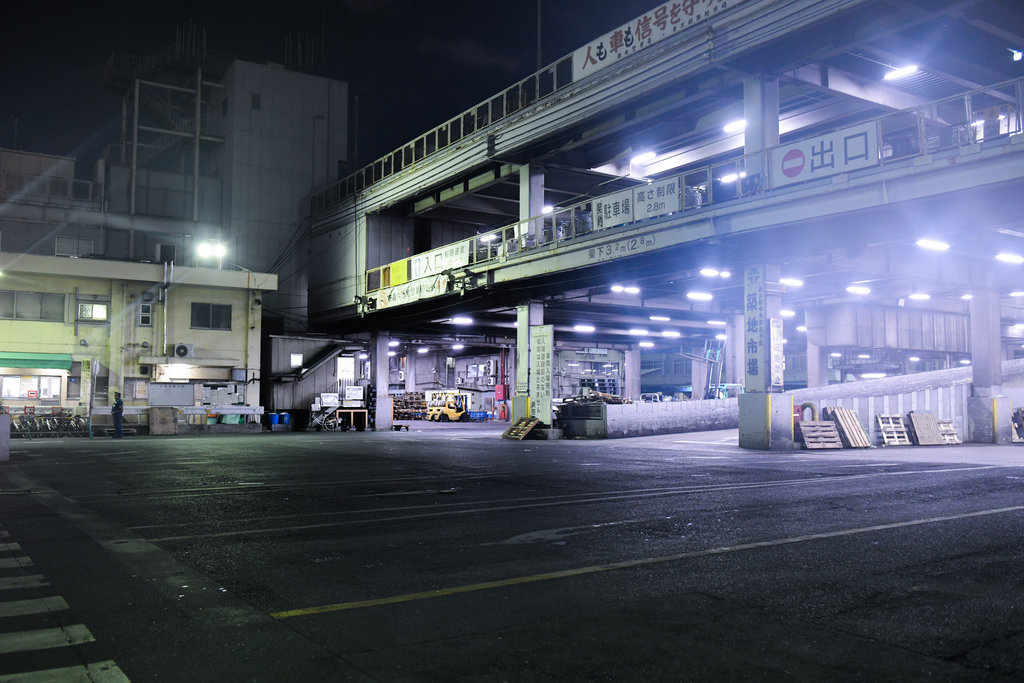Tokyo's Famous Tsukiji Fish Market Has Closed Down After Operating For 83 Years
Some 800 vendors will be relocating to a new site in eastern Tokyo.
It's the end of an era for the world's most popular fish market.
After 83 years in operation, the Tsukiji wholesale fish market in Tokyo, Japan has finally closed its doors.
Famed for its variety of fresh seafood and early morning tuna auctions, the inner section of the Tsukiji Market auctioned off its last hunk of fish on the morning of 6 October.
Tsukiji Market has been home to hundreds of vendors selling fresh seafood and produce since 1935, and is considered a historical landmark in Tokyo
Believed to be the biggest fish and seafood market in the world, the market is split into two distinct sections - the inner and outer market. The inner market was where the famous tuna auctions were held daily at the crack of dawn, in addition to housing over 900 licensed seafood dealers.
Meanwhile, the outer market is a mix of wholesalers and retailers selling seafood, groceries, kitchenware, and sweet desserts, as well as restaurants offering fresh sushi breakfasts, ramen, and soba.
According to CNN, vendors sell about five million pounds of seafood from all over the world on an average day to an assorted clientele that includes Michelin-starred restaurants and other companies.
Following the market's closure, some 800 vendors will be relocating to a new site on the man-made island of Toyosu in Tokyo Bay. The Toyosu Fish Market is scheduled to start operating on 16 October.
The new facility is fully-enclosed and fully air-conditioned, giving off a more visitor-friendly vibe compared to the hustle and bustle of Tsukiji.
The tuna auctions will continue to happen at the new site, although visitors will be pleased to know that they no longer have to get a reservation tickets to view the auction. You'll just have to show up early enough to snag a good spot on the special viewing platform.
The move has actually been in the works for about two decades after city officials expressed concern for the market's advancing age and dilapidating structure
In fact, the relocation was supposed to happen in 2016, but had to be postponed after the soil on which the new facility was being built was found to have been contaminated by chemicals.
The move also encountered quite a bit of controversy, with citizens voicing concerns about losing yet another of Tokyo's historical sites. Some of the markets' vendors and workers also protested against the move in the days leading up to its eventual closure.
Demonstrators protesting against Tsukiji Market's move to Tosoyu.
Image via Karyn Nishimura-Poupee / AFP / Getty Images